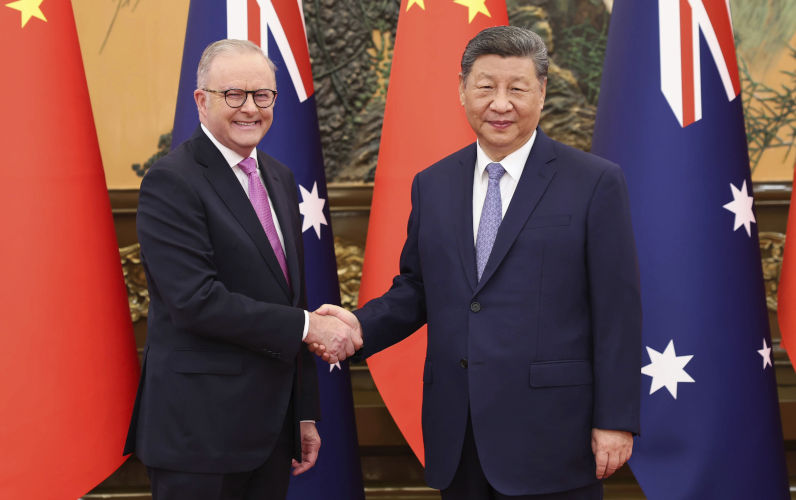Common interests the basis for stronger China-Australia relations
July 19, 2025
Neither a port controversy nor any third-party interference cast a shadow over the trade and business focus of Albanese’s trip to China.
Ahead of Australian Prime Minister Anthony Albanese’s visit to China, the Pentagon inexplicably demanded to know what Japan and Australia would do if a conflict broke out over Taiwan involving the United States. Was it diplomatic amateur hour or an attempt by the Americans to spoil a thaw under way between Beijing and Canberra?
Whatever it was, Albanese didn’t take the bait. Canberra took the position that it was a hypothetical question and no serious security commitment could be made by Australia on such a basis.
Albanese wants to make nice with Beijing after years of deteriorating relations under his predecessor Scott Morrison and his Liberal Government. His business in China this time is business, as shown by his entourage packed with executives from the mining and tourism industries. That is just fine with Beijing.
President Xi Jinping and other Chinese leaders have long aimed for win-win solutions in bilateral relations with other countries against third-party interference, meaning the US. For 16 years, China has been the biggest trading partner of Australia. It buys a quarter of Australia’s total exports, from iron ore and lithium to wine and seafood.
Albanese wants Chinese tourism to grow in his country. In the hot weather across much of China, a visit to the southern hemisphere may well be a welcome cooling experience. Both countries have spelled out their common interest in a prosperous, peaceful and stable Asia.
In Shanghai, Albanese said Australia did not support any unilateral action in the Taiwan Strait. According to an official Chinese statement, he also told Xi that Australia remained committed to its one-China policy and opposed Taiwanese independence.
Understandably, Australia will always be a steadfast ally of the US. Washington is a demanding customer which does not easily take no for an answer. This does not mean that Australia has no substantial autonomy when it comes to pursuing its own economic and diplomatic interests.
Xi told Albanese that both sides should commit to equal treatment, seek common ground and serve fundamental shared interests between “our two countries and two peoples”.
Much of Australia’s prosperity depends on its trading relationship with the country. A key contention is Albanese’s demand for a sale by the Chinese owners of the Darwin Port to return it to Australian hands, which Beijing opposes.
It is good to see the port controversy didn’t cast a shadow on his visit. The row can only be resolved by mutual respect and following contract law.
Republished from the South China Morning Post, 18 July 2025
The views expressed in this article may or may not reflect those of Pearls and Irritations.

